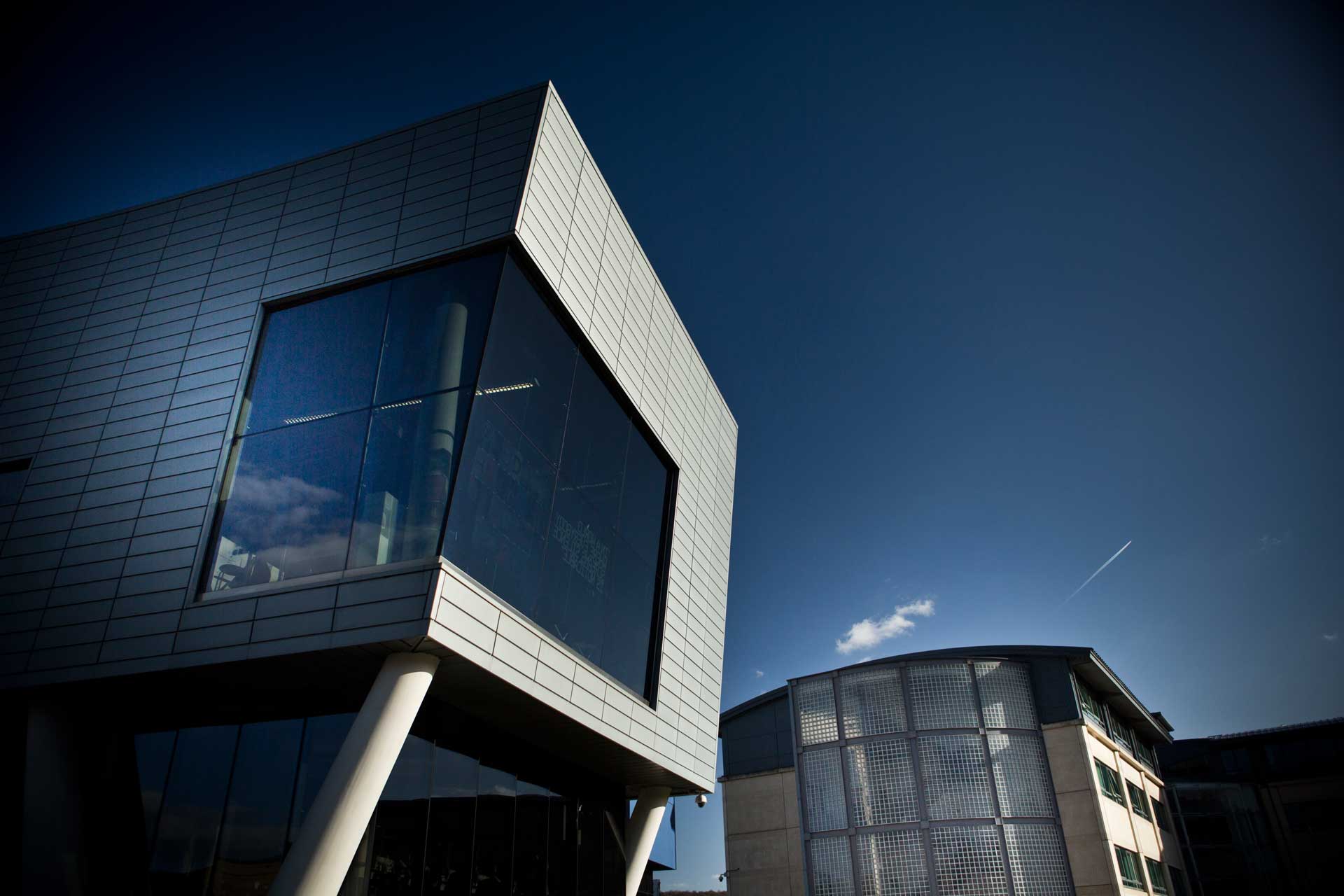
Staff
Philip Thomas
.jpg)
Philip Thomas (b.1972, North Devon) is a Professor of Performance, having joined the University of Huddersfield in 2005. He specialises in performing and writing about new and experimental music, including both notated and improvised music. He places much emphasis on each concert being a unique event, designing imaginative programmes that provoke and suggest connections.
He is particularly drawn to the experimental music of John Cage, Morton Feldman and Christian Wolff, and composers who broadly work within a post-Cageian aesthetic. In recent years he has been particularly associated with the music of Christian Wolff, performing and recording the solo piano music, and co-editing a book about his music. Solo recordings include releases on 'another timbre', 'HatHut', 'Bruce’s Fingers', 'Edition Wandelweiser' and 'sub rosa', featuring music by Martin Arnold, Laurence Crane, Morton Feldman, Christopher Fox, Jürg Frey, Richard Glover, Bryn Harrison, Tim Parkinson, Michael Pisaro, James Saunders and Christian Wolff.
Philip is a regular pianist with leading experimental music group Apartment House, with whom he has performed in festivals across the UK and Europe. He has also performed with Quatour Bozzini, Toronto-based Continuum, and in duos with Mark Knoop, Ian Pace, John Tilbury (piano duet and two pianos) and James Saunders (electronics). In 2010-11 Philip performed with the Merce Cunningham Dance Company, as part of their 'Legacy Tour', in the UK and France.
He has contributed articles about contemporary music performance practice to Contemporary Music Review, Twentieth Century Music and The Ashgate Research Companion to Experimental Music (ed. James Saunders). He was co-editor, and wrote two chapters for, a major new study of the music of Christian Wolff (Ashgate Publications, 2010).
You can find out more about Philip’s work and forthcoming events at www.philip-thomas.co.uk
Martin Iddon

Martin Iddon is a composer and musicologist. He joined the staff at Leeds in December 2009, having previously lectured at University College Cork and Lancaster University. He studied composition and musicology at the Universities of Durham and Cambridge, and has also studied composition privately with Steve Martland, Chaya Czernowin, and Steven Kazuo Takasugi. His musicological research has largely focussed on post-war music in Germany and the United States of America. His books New Music at Darmstadt and John Cage and David Tudor are both published by Cambridge University Press. His music has been featured on the Österreichischer Rundfunk, Radio New Zealand and on BBC Radio 3 and is published by Composers Edition. A portrait CD, pneuma, was released in 2014 on Another Timbre.
Emily Payne

Emily Payne a Postdoctoral Research Assistant on the AHRC-funded project, ‘John Cage and the Concert for Piano and Orchestra’, and a Teaching Fellow in Music Psychology, based at the University of Leeds. She undertook her Doctorate at the University of Oxford, employing ethnographic methods to investigate the creative processes of clarinet performance. Her research interests include psychological and anthropological approaches to the study of musical performance (particularly of 20th-century music), creativity, and collaboration. Her work is published in Contemporary Music Review, cultural geographies, Musicae Scientiae, and is forthcoming in Music & Letters. Emily also works as an Academic Studies Tutor at the Guildhall School of Music & Drama
Christopher Melen

Dr Christopher Melen is a Research Assistant working on the three-year, AHRC-funded project 'John Cage and the Concert for Piano and Orchestra'. Joining in 2015, his main role within the project is the development of an interactive website, but also covers collation and analysis of the work’s materials. Christopher studied music at Cardiff University, being awarded a BMus (1st class) in 2001, then continued at Cardiff with a PhD in Composition, under the supervision of distinguished composer Anthony Powers. During this time he also worked as an Associate Lecturer in the department, with responsibilities covering harmony, counterpoint and composition. He continues to compose, and his music has been performed both in the UK and abroad. He currently works mainly in the instrumental field, but has also written works involving electronics, and music for amateurs. He has a long-standing interest in computer-aided composition, and has used IRCAM's OpenMusic computer-aided composition environment extensively. Since leaving Cardiff in 2006 Christopher worked mainly as a programmer and web developer, working most recently for the award-winning US text analytics company Synapsify.